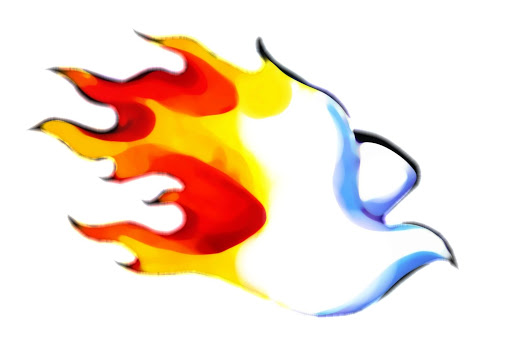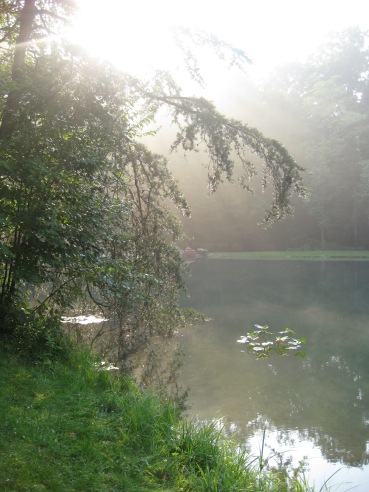
Luke 10: 23 – 37 (The Parable of the Good Samaritan)
A man is traveling on a dangerous road when he’s attacked by bandits, robbed, and left for dead. Two people come by who we believe should care for this man, but they don’t. We are quick to judge them as heartless and indifferent.
Then one comes along who shouldn’t care. The Israelites and Samaritans were enemies, so the Samaritan should be the ultimate bad guy in the story. But this Samaritan does care. He is the only one who stops to help the beaten man. Our hero! Clean and simple, right?
This passage is so familiar we almost don’t even listen to it anymore. Most people will say that the moral of this most famous of Jesus’ stories is “love your enemies.” That’s what’s going on here, right?
Well, maybe that’s too simple and we need to take a closer look. Jesus says, “a man was going down from Jerusalem to Jericho, and fell into the hands of robbers.” Jesus never identifies the victim as anything other than a man. He identifies the priest, the Levite, and the Samaritan. But we are never told whether the victim is an Israelite, Caananite, scribe, Sadducee, laborer, or another Samaritan. So we can’t assume that the victim is anyone’s enemy.
The man is stripped bare, bloody, and beaten, lying by the side of the road, so how would anyone from a distance or with a glance, be able tell if he is a friend or a foe? All we know about this man is that he is in desperate need of help.
There still is a road from Jerusalem to Jericho today. It’s about 18 miles long. I have seen pictures of it, It is a narrow, winding road that runs through a series of close hills. In Jesus’ day, it was notorious for sheltering bandits. Merchant caravans and people with wealth would hire soldiers and guards to protect them when they travelled along that road. A man travelling by himself, was incredibly vulnerable.
So I think one of the things we are overlooking in this story, is the fear factor. The priest and Levite are travelling alone and they see a beaten and bloody man that they may think is dead.
Wouldn’t that frighten you? To see a bloody body lying by the side of a dangerous road?
They may be terrified that the robbers are still in the area. They may be afraid that the man on the ground is a decoy trying to trick them, someone who will attack them as soon as they let down their guard and come closer.
I think they are afraid and asking themselves, “What will happen to me if I stop?” And their answer is that they don’t want to take the chance to find out.
I hate to say it, but if I am brutally honest with myself, as much as I’d like to imagine myself as the heroic Samaritan…I’m afraid it’s much more likely that I would be the frightened traveler crossing the road and hurrying along my way…putting my blinders on…not looking to the left or right, trying to make myself small and invisible so that no one would notice me, and I would get safely home.
I used to live in Hoboken and work in New York city. When I saw groups of men, hanging on the sidewalk, no matter whether they were young or old, no matter their race, day or night, I would cross the street and walk on the other side. I held my purse more tightly against my body.
I walked briskly with purpose as I was told to do to make myself a less appealing target. I would clutch my keys in my fist with one sticking out so I could use that as a jabbing weapon. As I walked, I prayed nothing would happen, and that I would arrive home feeling silly and embarrassed for my precautions.
Better safe than sorry.
So, in considering the fear factor, I don’t think the point of this story is that the Samaritan is stopping to help an enemy…I think the point is that he stops at all.
Because the Samaritan is also travelling alone. He has supplies and an animal carrying his goods. We learn that he has denarii. He sounds like just the kind of traveler that bandits would be especially interested in. I imagine that he would be anxious and fearful on this notoriously treacherous road.
This is one of the things so interesting about the role the Samaritan plays. If this parable really was just another morality tale, if this story were about loving your enemies, then the hated-by-everyone Samaritan would be the guy in the ditch. Then we’d have a classic “love your enemies” story. You know the rules: help those in need and get bonus points because it’s a hated Samaritan.
What is important about the Samaritan is that even if he is afraid, he asks himself a different question. Instead of asking, “What will happen to me if I stop?” The Samaritan looks with his heart and asks, “What will happen to him if I don’t stop?
Blinded by fear, the priest and the Levite can only see risk, or a potential burden, a big hassle, an obligation, a problem, a danger. For whatever reason, they put their blinders on and cross to the other side of the street. So they don’t have to see or respond to this person in need.
I have heard this kind of behavior called “bystander syndrome.” It is a term used to describe people that see bullying or abuse but turn a blind eye. How often have we heard someone on the news say they saw or heard something suspicious happening, but they didn’t want to get involved. Not even to pick up a phone from the safety of their own homes. They were too scared. The hoarding, and fights we are seeing in social media over toilet tissue, medicine, and food, are also coming from a place of great fear.
The lawyer asks Jesus to be specific, “Who is my neighbor?”
“Neighbor,” after all, if construed too broadly could mean a whole lot of people.
The lawyer is doing what lawyers do best – defining the parameters of the transaction. What gets him enough points to add up to eternal life? Who, exactly, is my neighbor? Who, that is, must I recognize as having a legitimate claim on me? Who warrants my attention? Who must I notice? Who must I see? In short, who counts?
And conversely, who doesn’t count? Who can I dismiss and ignore? Who exactly is my neighbor?
But Jesus doesn’t want us to be transactional with each other. He wants us to be relational. So, Jesus flips the question. At the end of his parable, Jesus asks, “Which of these three, do you think, was a neighbor to the man who fell into the hands of the robbers?”
Jesus changes the definition of ‘neighbor’ from one who is the object of kindness to the one who is the giver of kindness. It isn’t a matter of who you are kind to..
….the important thing is to be kind.
The question isn’t, “who is your neighbor,” but “Who’s neighbor do you choose to be? What kind of neighbor are you?”
The Samaritan reaches beyond his fear of the other, of the stranger, of the situation, even of the danger, because he sees a person, a person in need, a person like himself, and he chooses to be a good and caring neighbor.
In the midst of this time of fear and confusion and crises, what kind of neighbors do we want to be?
What happens to us, what happens in our hearts, when we don’t help our neighbor? What happens when we cross to the other side of the road, when we put our blinders on, and harden our hearts against one another?
What happens to us as people, as a church, as a community, and as a country if we let fear overwhelm and rule us?
What kind of neighbors, do we want to choose to be?
The thing about choosing to be neighborly is that it changes US…changes something inside us. It changes how we perceive other people…it changes who we are and how we are in the world.
Choosing to be a good neighbor opens our hearts and minds with love and mercy, pity and compassion. It moves us towards each other with open hands and caring hearts.
Covid-19 is changing the world in ways we can see and predict, and in ways we can’t possibly see or predict. One thing we can clearly see is that the whole world is being impacted. This pandemic is reminding us that we are all interconnected and interrelated. The whole world is filled with our neighbors.
What will the world look like when Covid-19 finally subsides? Will we have succumbed to fear, isolationism, and everyone for themselves? Or, will we have united as brothers and sisters, world neighbors and joined forces, and shared resources in order to overcome these unprecedented obstacles together? Will this health and financial disaster draw us closer or tear us farther apart?
Remember, Jesus final question is, “Which one of these people was a neighbor to the man in need?” Which one is helping to build God’s loving neighborhood? Which one is building up beloved community? What kind of a world are we helping to build, if we are not willing to be good neighbors?
Jesus says, “Which one of these people was a good neighbor?”
The lawyer answers, “The one who took pity and showed mercy and compassion.”
Jesus says, “Go and do likewise.”
Do this and you will live. Not some day, this day.
Do this and you will live, not in eternity, but each and every day, building God’s kingdom here on earth as we imagine it is in heaven.
Which one was the neighbor you want to have?
Which one is the neighbor you want to be?
Jesus says, “Go and do likewise…and you will live.”
It doesn’t matter who you are kind to….in these challenging times, it matters that we be compassionate and kind.
Listen to these words of the Prophet, “I hereby command you: Be strong and courageous; do not be frightened or dismayed, for the Lord your God is with you wherever you go.” Joshua 1: 9
Let us pray,
O God, let us see the world with your eyes. Let us reach through our fear to lift up all those in need. Open our hearts to one another in the midst of our trials and tribulations. Open us to your presence, always with us. Amen
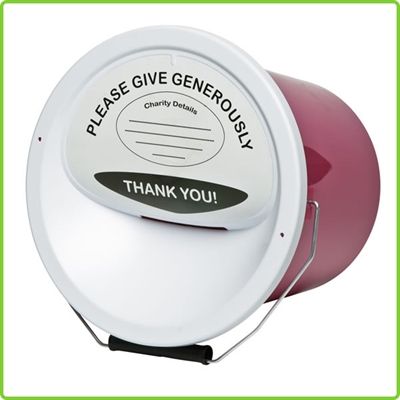
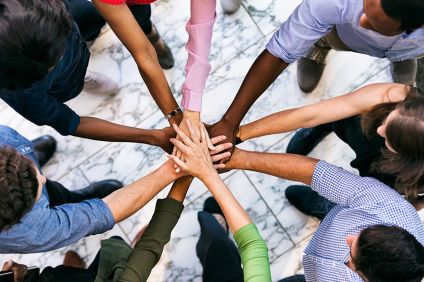
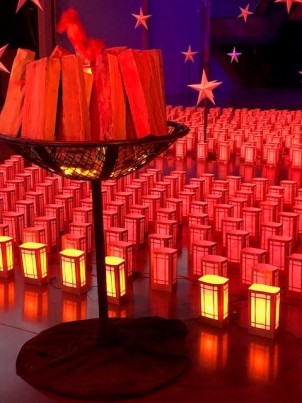 WaterFire – Providence, RI – Beacon of Hope
WaterFire – Providence, RI – Beacon of Hope


